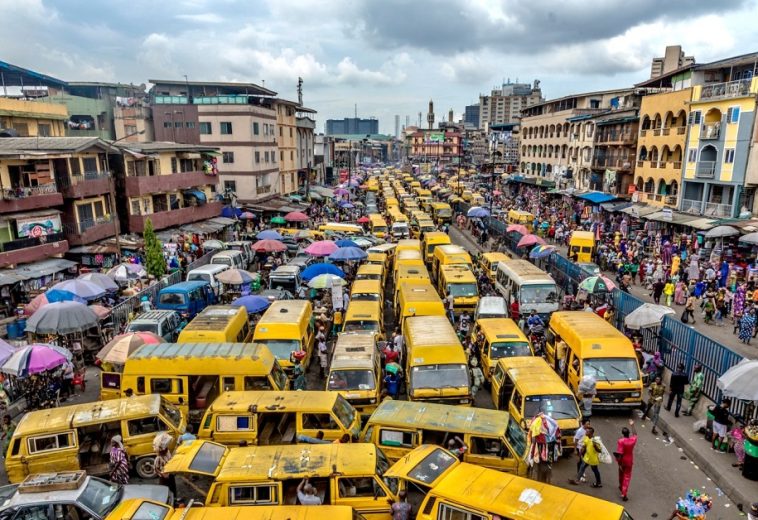“Engaging youth in the planning and development of urban spaces is critical to Africa’s future. The voices of young people must be heard and included, as they are the ones who will live with the consequences of today’s urban planning decisions,” said Maimunah Mohd Sharif, Executive Director of UN-Habitat, in her opening address for World Habitat Day 2024. This year’s theme, Engaging Youth to Create a Better Urban Future, focuses on empowering the younger generation to actively shape Africa’s rapidly expanding cities and tackle the pressing challenges brought on by urbanisation across the continent.
Africa is at the forefront of global urbanisation. The United Nations estimates that by 2050, nearly 60% of Africans will live in urban areas, up from 43% today. With young people making up over 60% of the continent’s population, they are poised to play a crucial role in determining the future of African cities. However, rapid urban growth has introduced significant challenges, including overcrowding, inadequate infrastructure, unemployment, and environmental degradation. This year’s World Habitat Day theme underscores the need to ensure that young people are not merely passive recipients of urban policies but active participants in shaping the cities of tomorrow.
The Role of Youth in Africa’s Urban Development
Urbanisation offers tremendous opportunities for Africa’s development. Well-planned cities can drive economic growth, reduce poverty, and improve access to essential services. However, poorly managed urbanisation can exacerbate inequality, strain resources, and hinder sustainable development. Youth engagement in urban planning is vital, as they bring fresh perspectives, creativity, and a vested interest in the long-term success of their communities.
“In many African cities, youth are excluded from the decision-making processes that shape their lives,” Sharif noted during the World Habitat Day discussions. “Yet, it is their future at stake. We must open the door for young people to co-create their urban environments.”
Young Africans are particularly affected by the negative impacts of rapid urban growth, such as rising unemployment and inadequate housing. For instance, in countries like Nigeria, Kenya, and Ethiopia, youth unemployment rates are among the highest globally, further aggravating challenges related to urban poverty.
Youth in African cities face complex problems requiring innovative solutions. Housing shortages, access to clean water, and reliable transportation are critical areas where youth participation can drive meaningful change. By actively involving young people in urban planning, African cities can become more inclusive and better equipped to meet the needs of all residents.
Current Initiatives Engaging African Youth in Urban Planning
World Habitat Day 2024 highlights ongoing efforts to engage African youth in urban development. One such initiative, Slum Dwellers International, works with young people in informal settlements to document living conditions, assess infrastructure needs, and advocate for improvements. Youth-led data collection helps identify service delivery gaps and uplift marginalised communities.
Another initiative, YouthMappers, engages young Africans in creating open-source maps using Geographic Information Systems (GIS) to identify flood-prone areas and design community infrastructure. Technology and social media are also playing pivotal roles in enabling African youth to engage in urban planning, using digital platforms to voice concerns, advocate for policy changes, and collaborate on community-based projects.
Challenges Facing Youth Participation in African Urbanisation
African youth face significant barriers in urban development, including limited access to education and skills training, political and institutional hurdles, and high youth unemployment. Over 33 million children in Sub-Saharan Africa are out of school, many of whom live in informal urban settlements. Political structures often exclude youth from decision-making, with only 15% of young people in African countries feeling their government listens to them. Additionally, youth unemployment in African cities is high, with countries like South Africa experiencing rates as high as 35%. These challenges limit their engagement in urban planning and activism.
Empowering African Youth for Sustainable Urban Growth
Governments, civil society organisations, and international agencies must work together to empower youth and make urban planning processes more inclusive. Key strategies include expanding education and skills training, creating youth advisory councils, and fostering public-private partnerships. Education is crucial for youth participation in urban development, and investing in systems that equip young Africans with technical and leadership skills can build a generation of informed leaders. Local governments should establish youth advisory councils to give young people a formal role in shaping urban policies. Public-private partnerships can also empower African youth to shape their urban environments, by supporting community-based projects, providing job training, and funding local initiatives.
The Path Forward: A Call to Action
World Habitat Day 2024 provides a timely reminder that young Africans are not just future leaders—they are leaders today. By involving youth in the planning and design of their cities, Africa can build more inclusive, sustainable, and resilient urban environments that meet the needs of all its people.
“Let us harness the energy and creativity of our youth,” said Maimunah Mohd Sharif in her closing remarks. “Together, we can create cities that offer opportunity, dignity, and a better future for all.”
In the coming years, it is essential for African governments, civil society, and the private sector to prioritise youth engagement in urban planning. This will not only ensure that cities are responsive to the needs of their youngest residents but also that the future of Africa’s urban spaces is one of sustainability, equity, and innovation. By empowering youth today, Africa can secure a brighter, more prosperous urban future for generations to come.




